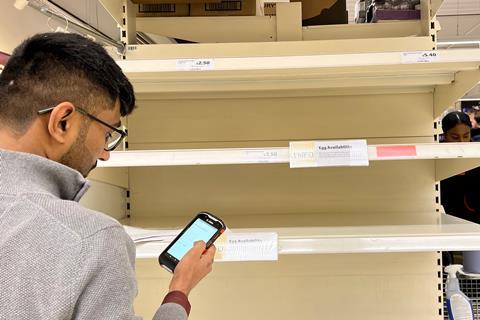
Shoppers faced ongoing egg shortages across the mults during the festive season – despite prices continuing to rise, with some packs as much as 85% dearer year on year.
Of the 171 egg lines available from w/c 28 November to 2 January in the traditional big four, Aldi, Lidl, Waitrose, Iceland and Co-op, 61 rose in price, analysis of Assosia data by The Grocer shows.
The biggest monthly price hike seen was in Asda for a Staveley Large Free Range eggs 6-pack, which rose by 18.2% to £1.95. This meant it was now 30% more expensive than at the start of 2022, the data showed.
A Staveley Medium Free Range 12-pack and a Happy Egg Co Free Range Large Eggs 10-pack, both stocked at Asda, were the next highest risers in the period, with their prices jumping by 14% and 12.9% respectively to £2.85 and £3.30.
The latest round of increases meant some egg lines – such as Iceland’s 15 Mixed Sized Eggs, which rose 5.7% to £1.85 – were now up to 85% dearer than they were a year ago.
Iceland’s 6 Large Free- Range Eggs was the next highest riser year on year. While the line had risen only by 2.29% in the past four weeks, compared with January 2022 it was 79% more expensive at £1.79 per pack.
The price moves mark the latest bout of egg inflation across the mults. In November, The Grocer reported increases of up to 20% in just two weeks amid a rapidly developing supply crisis – caused by producers either pulling back on production or abandoning it due to soaring costs and low returns.
The price rises were now starting to reach producers, said British Free Range Egg producers Association CEO Robert Gooch. However, he this week reiterated warnings they were also “too little to late to make any difference [to supply] in the short term”.
“The focus now is looking at [producers] coming back in and seeing if the rises that are slowly filtering through are sufficient to cover costs, and that is what producers are evaluating now,” he said.
Eggs shortages: can dairy-style contracts mend the broken system?
It comes as shoppers faced shortages of eggs in the major supermarkets over Christmas, with multiple reports of supply issues and empty shelves amid heightened festive season demand.
“Demand for eggs is traditionally strong during the Christmas period, which has put added pressure on the supply chain at a time when availability is already tight,” said a British Egg Industry Council spokesman.
Gooch added that with demand peaking in December, it should reduce in January “in terms of shortages and rationing – because while supply has not increased, demand will have reduced”.
However, he warned that “there will still be rationing” to come, likely for at least three months, because it takes at least three months for producers upping their production or re-entering the sector would need three months for hens to lay eggs again, he explained.
“As an industry we are doing everything we can to ensure that British Lion eggs get from the farm to the supermarket shelves as quickly as possible,” added the BEIC spokesman.
It follows a report by The Guardian last week that the UK was considering relaxing free-range egg rules for avian flu outbreaks following similar proposals from the EU.
Gooch told The Grocer that the current number of weeks hens could be housed and still qualify as free range was “arbitrary” and should the EU change its rules, the UK should do the same.
Defra has been approached for comment.








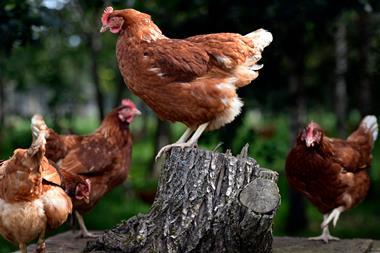
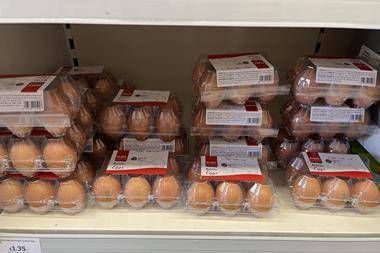
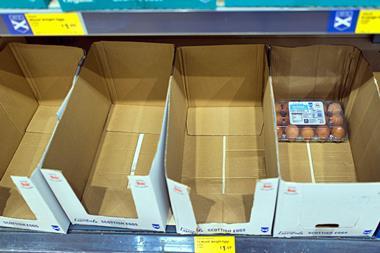
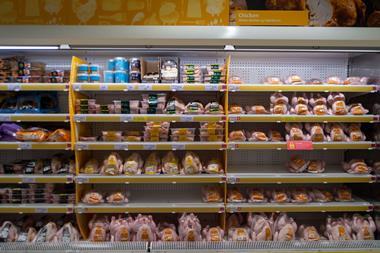







No comments yet